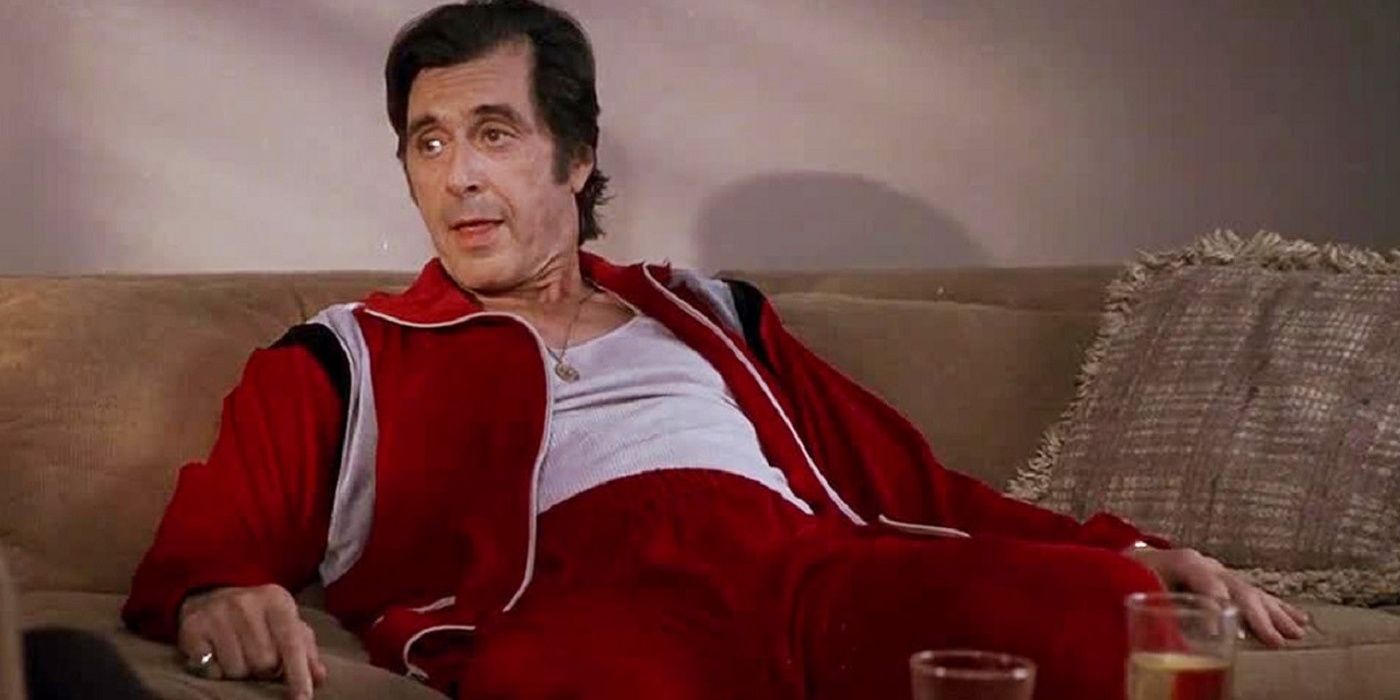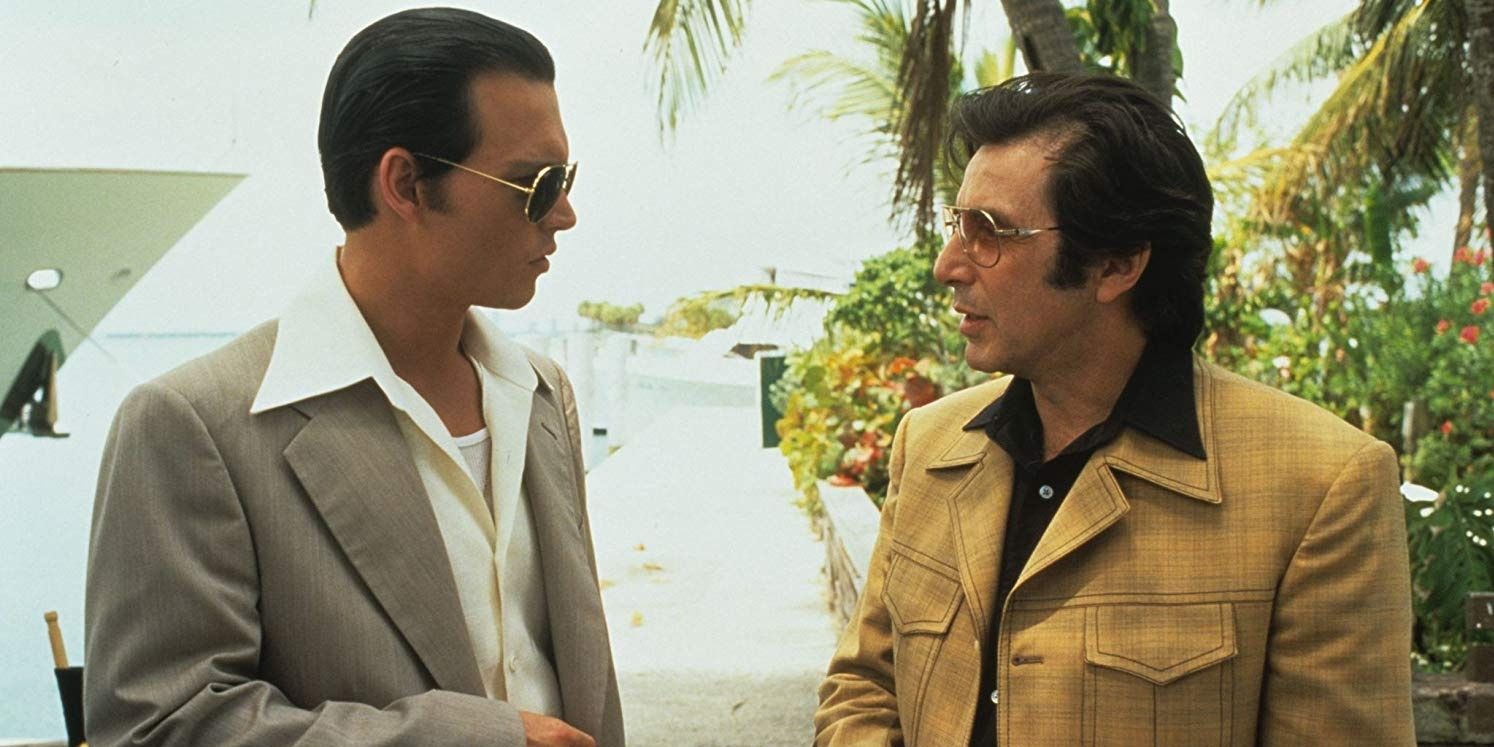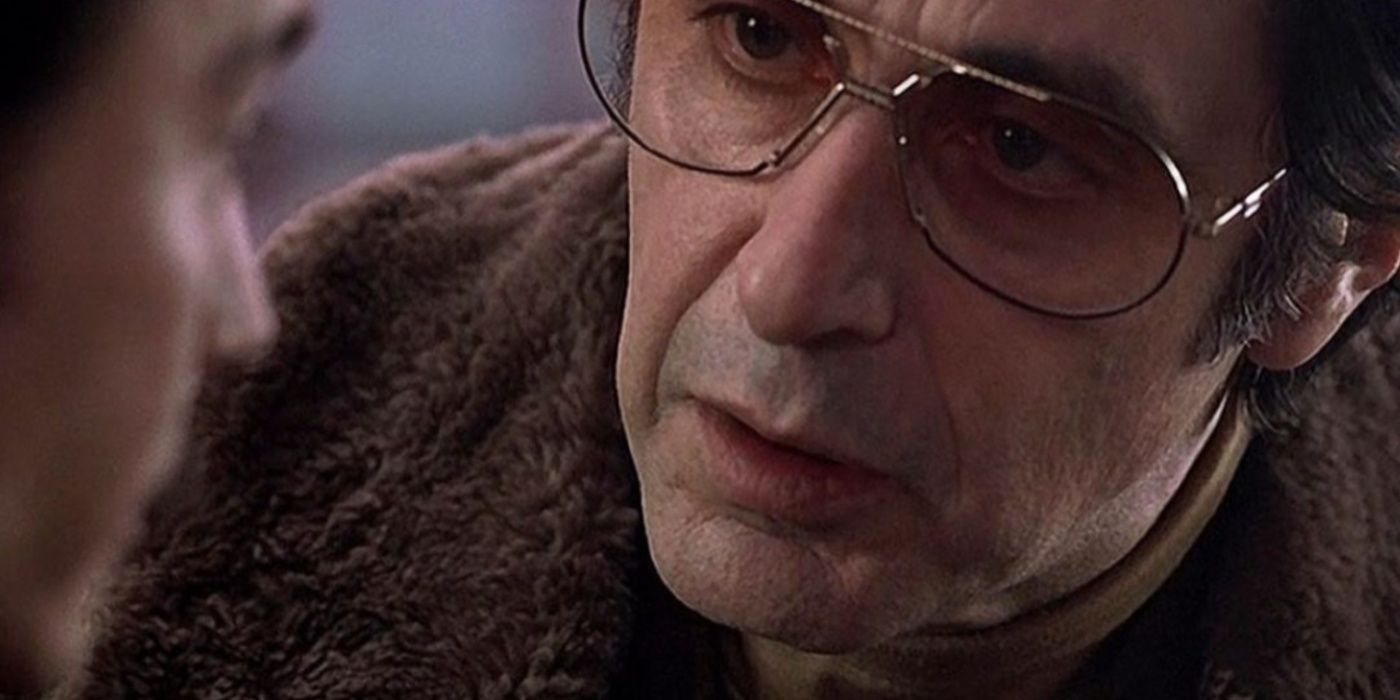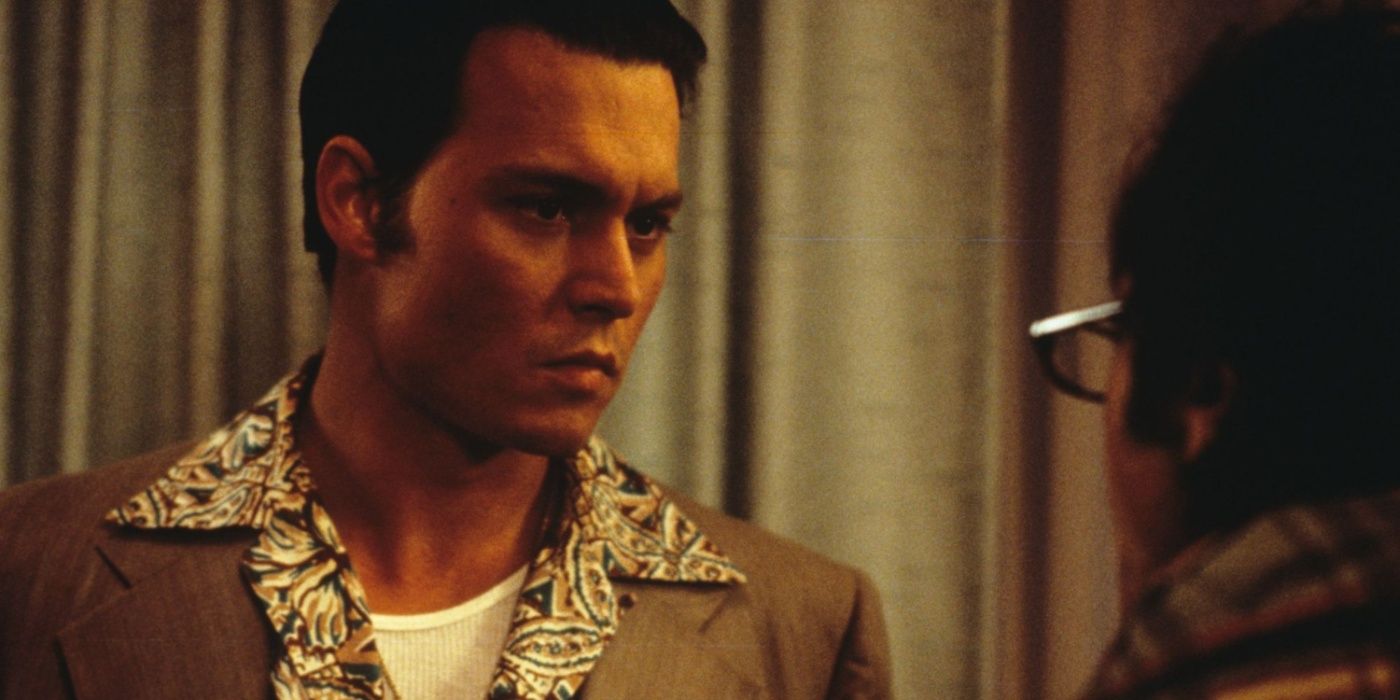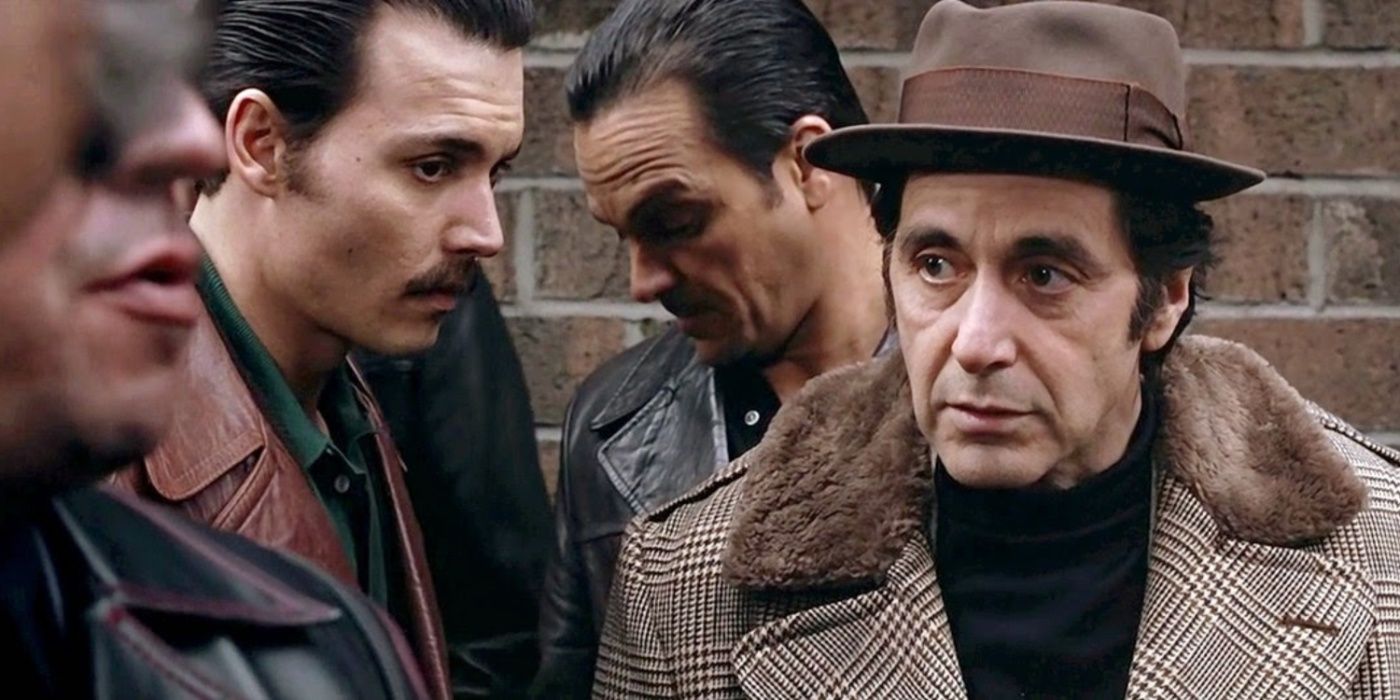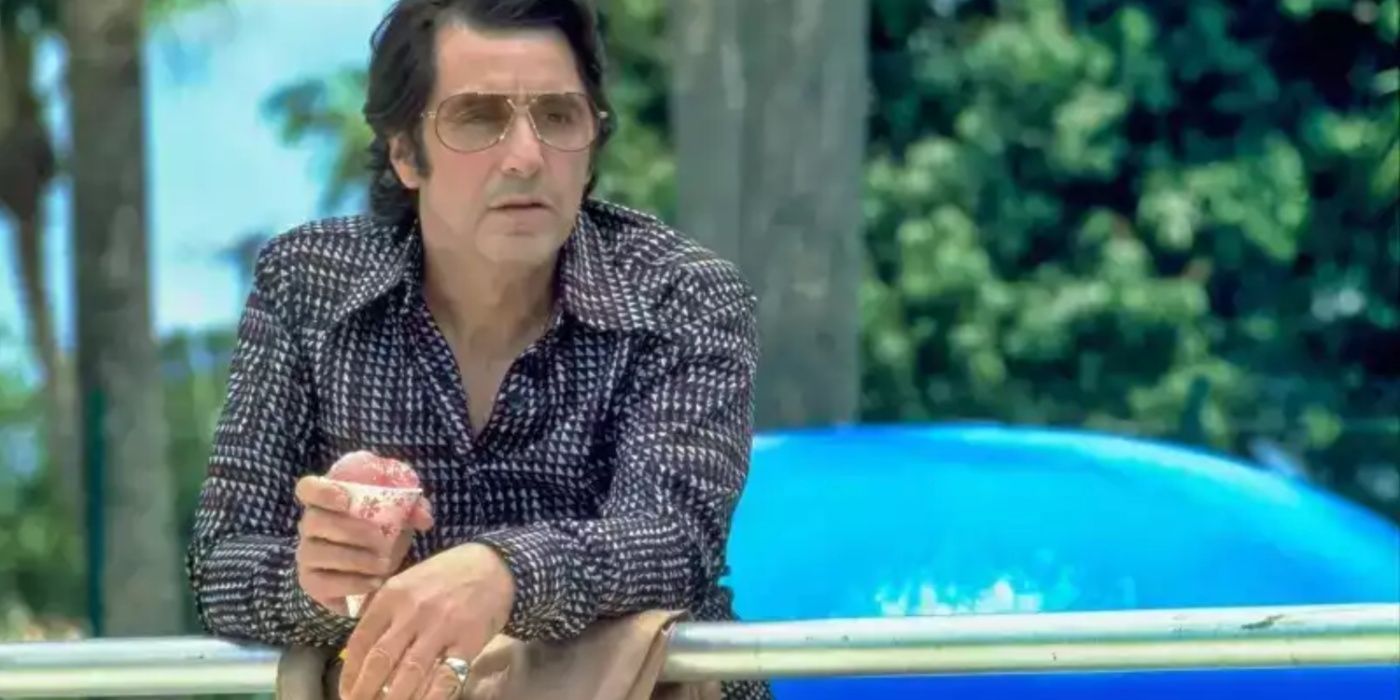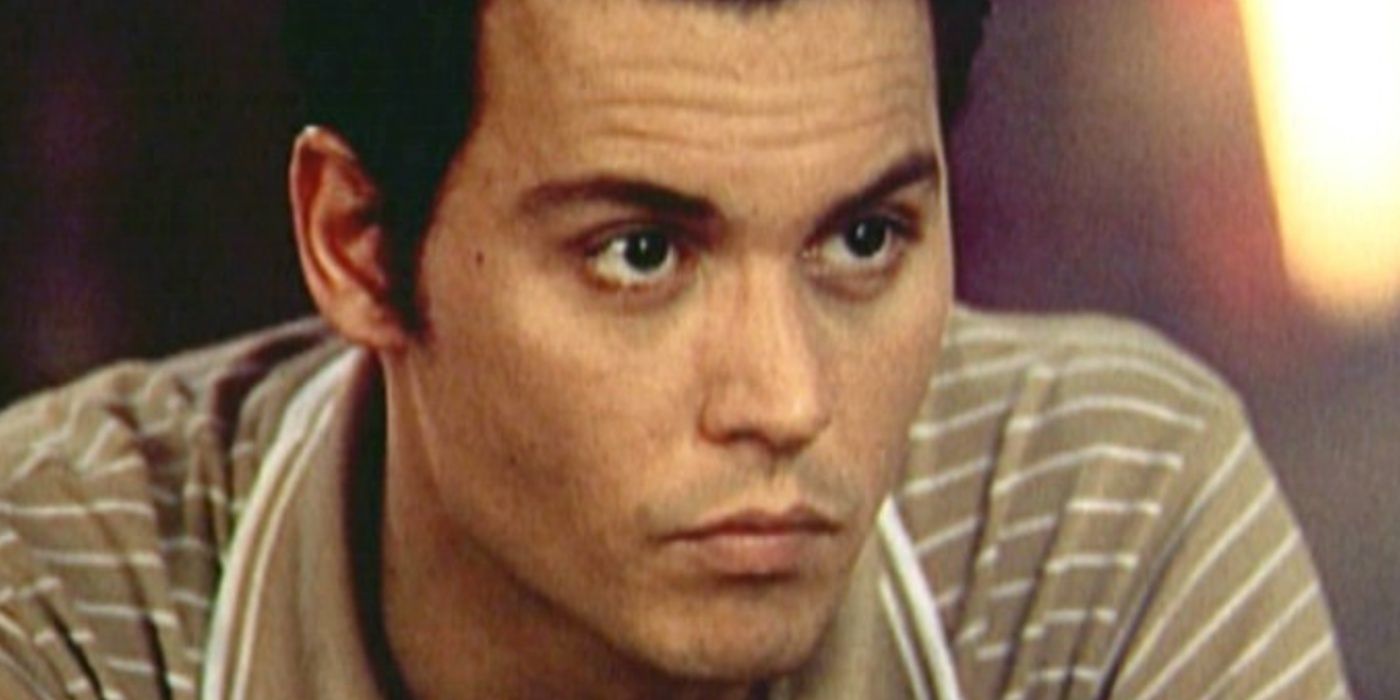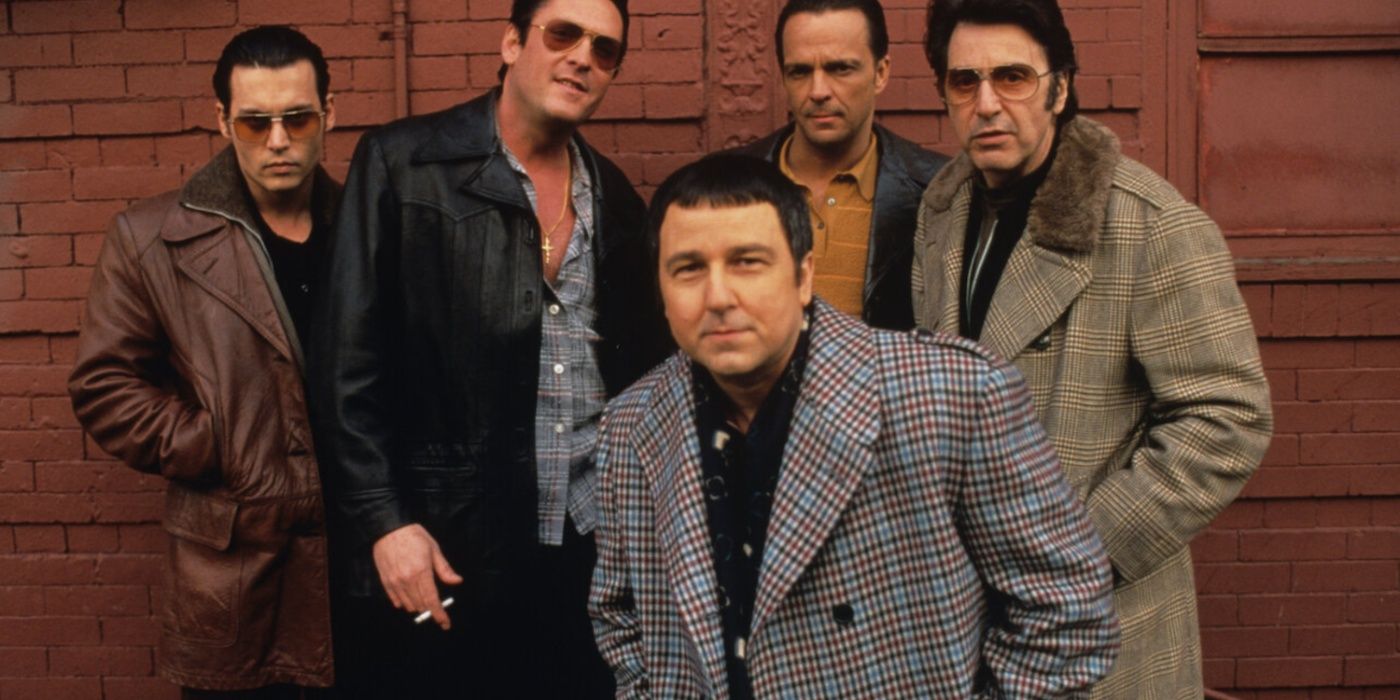Summary
- Lefty Ruggiero’s real life differed from his portrayal in Donnie Brasco, showcasing only part of his criminal career.
- Lefty formed a close bond with undercover agent Donnie Brasco, with detailed interactions not fully shown in the movie.
- The impact of the Donnie Brasco movie on the Mafia, especially the Bonanno family, led to significant repercussions and trials.
Benjamin ‘Lefty’ Ruggiero is a key character in Donnie Brasco, but what happens to him at the end of the story differs from real life. Based on the true story of FBI Agent Joseph Pistone’s six-year infiltration into the Mafia, the movie presents a riveting narrative set in New York City. Johnny Depp stars as Pistone and the story follows Pistone as he adopts the alias “Donnie Brasco” to gain the trust and respect of the members of the Bonanno family, one of the most important Mafia families in New York, especially ‘Lefty’ Ruggiero (Al Pacino).
Lefty, an aging Mafia hitman and enforcer for the Bonanno crime family, is depicted as a complex character who befriends Donnie Brasco. This relationship forms the core of Donnie Brasco‘s narrative, which is what makes it a great gangster movie. However, while Lefty is shown as a key figure in the mob, the film only scratches the surface of his real-life counterpart. Additionally, some of the movie’s events including Lefty are extremely dramatized. The character’s portrayal in the film serves as a foundation for exploring the actual events and what happened to Lefty after Donnie Brasco.
Related
Every Johnny Depp Movie Ranked From Worst to Best
From sailing the high seas to the misery of Mortdecai, here are Johnny Depp’s films ranked from worst to best.
Lefty Was A Real-Life Gangster
The Movie Focuses On One Aspect Of Lefty’s Long Criminal Career
Benjamin “Lefty” Ruggiero, born on April 19, 1926, in Hell’s Kitchen, Manhattan, led a life deeply entrenched in organized crime. His journey into the underworld began in Little Italy, where he grew up. As a young man, Lefty joined the Bonanno family organization, starting as a street soldier under caporegime Michael Sabella (via Donnie Brasco: Unfinished Business by Joe Pistone).
The movie version of Lefty, while capturing his essence as a mobster, glosses over certain details of his life.
His criminal activities included bookmaking, extortion, and loansharking. Ruggiero’s life, markedly different in certain aspects from his cinematic portrayal, was one of a seasoned gangster who rose through the ranks. The movie version of Lefty, while capturing his essence as a mobster, glosses over certain details of his life.
The Bonanno crime family, one of the most significant Mafia families in New York, was where Lefty Ruggiero found his foothold in organized crime. His integration into the family was facilitated through his relationship with Anthony Mirra, a Bonanno soldier. Ruggiero’s involvement in the family’s bookmaking and extortion criminal activities played a crucial role in his rise within the organization.
Donnie Brasco simplifies Lefty’s journey in the Bonanno family, focusing mainly on his connection with Donnie Brasco. However, in reality, Lefty’s integration was a more complex process involving various criminal operations and relationships with key figures like Philip “Rusty” Rastelli, the future family boss.
Lefty & Donnie Brasco Really Did Form A Close Bond
The Fake Donnie Brasco Was Left’s Best Man
The relationship between Lefty and Donnie Brasco (undercover agent Joseph Pistone) was indeed close in real life, mirroring their portrayal in the film, according to Pistone’s autobiography, Donnie Brasco: Unfinished Business. Introduced by Anthony Mirra, Lefty and Donnie developed a bond through their work together in Ruggiero’s bookmaking operation.
This closeness was further cemented by personal events, such as Brasco serving as the best man at Ruggiero’s wedding and advising him on his son’s heroin addiction. Their relationship exemplifies the emotional and psychological challenges faced by undercover agents, who often form genuine connections with their targets regardless of the latter’s criminal background.
The Real Donnie Brasco Went To School To Learn About Diamonds
Brasco’s Cover Was That He Was A Former Jewel Thief
Joe Pistone, the real Donnie Brasco, undertook substantial preparation for his undercover role, including education on precious gems and diamonds. This training was critical for Pistone to convincingly pose as an expert jewel thief. His connections with jewelers further supplemented his knowledge and credibility in this area.
In an interview with Jonesville Station, Pistone emphasized the importance of authenticity in his undercover work. He mentioned that if he was unsure about something, instead of fabricating a lie, he would admit his lack of knowledge, reasoning that no one is expected to know everything in their profession. This approach helped maintain his cover and build trust within the mob.
Did Lefty Really Cut Up Dead Bodies?
The Movie Shows The Brutal Violence Of The Mob World
In Donnie Brasco, there are dramatic depictions of mob violence, including a disturbing scene where Lefty is involved in dismembering bodies. While the film portrays this as part of his role in the Mafia, the reality of Lefty’s involvement in such activities is more nuanced. The real Joe Pistone revealed that there was one specific time when a dead body was dismembered (via Las Vegas Review-Journal), but that was simply because the victim was so big.
Even then, Pistone’s comments don’t make it clear if Lefty was even involved. Additionally, Pistone mentioned that the dismemberment was achieved using a chainsaw, not a hacksaw as seen in the film. Crime movies like Donnie Brasco do often lean into the violence of the lawless life so it is not surprising the movie added some gruesome details.
Did The Real Donnie Brasco Ever Actually Kill Anyone?
The FBI Had A Plan To Cover For Any Murders
Joe Pistone, as Donnie Brasco, never actually killed anyone during his undercover operation. This is a significant departure from some cinematic portrayals of undercover agents where they are often shown engaging in violence, including murder, to maintain their cover. Pistone revealed that if there was a situation where he was asked to kill someone, which did happen, he would collaborate with the FBI to stage a murder and place the intended victim into witness protection (via Penn). This approach was used four times during his undercover work in the Bonanno family.
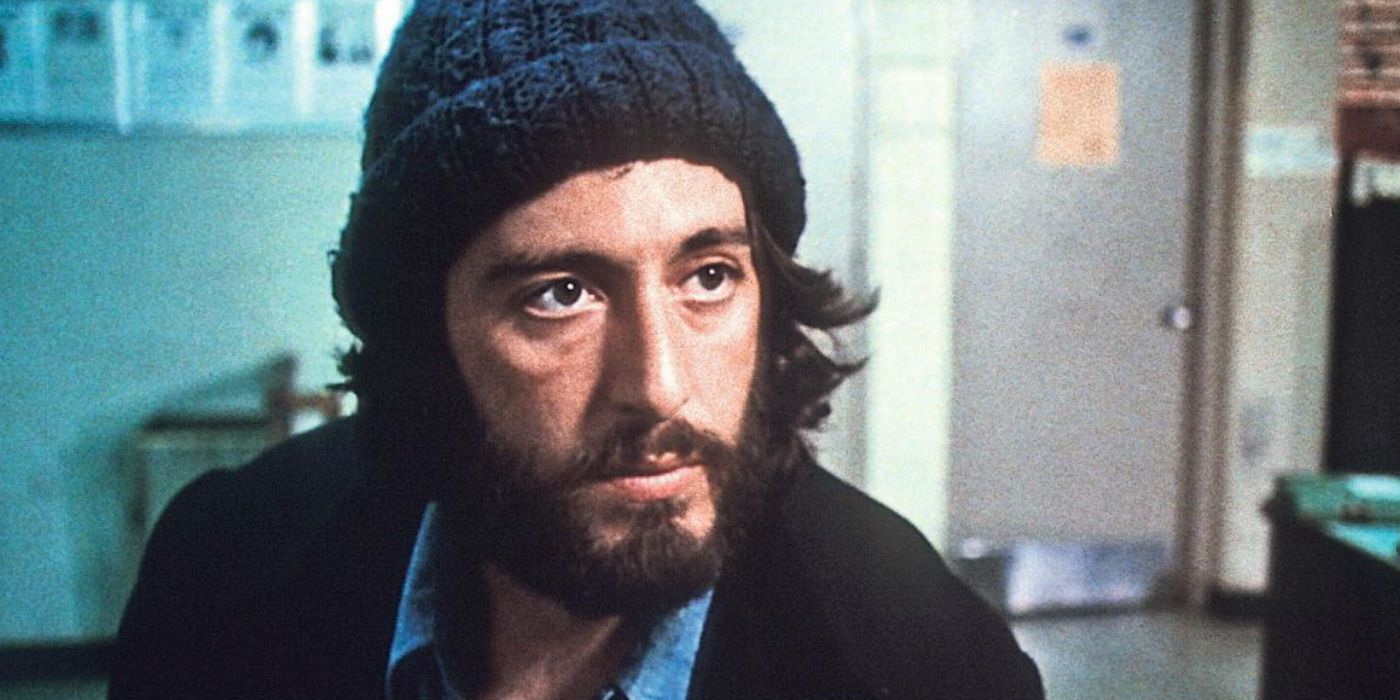
Related
Al Pacino’s Best Movies, Ranked
Between The Godfather, Scarface, and Dog Day Afternoon, Al Pacino has tons of iconic characters and classic movies in his endless filmography.
How The Mafia Responded To The Donnie Brasco Movie
Figures Depicted In The Movie Actually Spoke Out
The release of the Donnie Brasco movie triggered a unique response from the Mafia, particularly affecting the Bonanno crime family. Notably, mobster John (Boobie) Cerasani, associated with the Bonanno family and having had dealings with Donnie Brasco (Joseph Pistone), took legal action against the makers of the film. Cerasani filed a libel suit against Sony Corporation, TriStar Pictures, and others involved in the production, alleging that the gangster movie defamed him. This claim stemmed from his acquittal in 1982 on racketeering charges that were part of Pistone’s investigation.
However, Manhattan Federal Judge Denny Chin dismissed Cerasani’s claims as baseless, asserting that his acquittal was not a declaration of innocence but rather a failure to prove absolute guilt (via RCFP). Judge Chin further highlighted Cerasani’s criminal history, listing various convictions from 1985 to 1994, reinforcing the view that the film’s portrayal did not constitute defamation. This legal battle exemplifies the real-world impact of the film on the individuals portrayed and their attempts to control their narrative outside the cinematic world.
What Happened To Lefty After The Events Of Donnie Brasco?
Lefty Died Before The Movie Was Released
The fallout from the Donnie Brasco operation had significant consequences for Lefty Ruggiero. However, while the ending of Donnie Brasco hints at Lefty getting murdered, that wasn’t the case whatsoever. Ruggiero himself was arrested on August 29, 1981, and later convicted of racketeering conspiracy, receiving a 15-year prison sentence. Lefty’s life post-Brasco was marked by a refusal to believe in Brasco’s true identity and a vow for revenge. He served almost 11 years in prison before being released in April 1993 due to his deteriorating health from lung and testicular cancer. Ruggiero died on November 24, 1994.
What Happened To The Real Donnie Brasco?
The Mob Sought Revenge On Pistone
After the conclusion of Operation Donnie Brasco, the real Joe Pistone’s life took a dramatic turn. Due to his successful infiltration into the Mafia, which led to over 200 indictments and more than 100 convictions, the Mafia placed a $500,000 contract on Pistone’s life (via Global News).
This threat was so significant that the FBI had to intervene, advising Mafia bosses in New York not to murder Pistone. Eventually, the contract was dropped, considering the high risk and attention it would attract. Despite this danger, Pistone did not shy away from the public eye, testifying in various trials and continuing his work against organized crime.
The real Joe Pistone’s true crime podcast,
Deep Cover: The Real Donnie Brasco
, is available on Spotify and Apple.
Post-FBI, Pistone’s life remained shrouded in secrecy for safety reasons. He lives under an assumed name with his family in an undisclosed location. Despite these precautions, Pistone has remained active, authoring books and serving as a consultant to law enforcement agencies globally.
His expertise in organized crime is so renowned that he has been called upon to testify before the United States Senate (via The Daily Record). In May 2020, embracing the digital age, Pistone started a podcast titled Deep Cover: The Real Donnie Brasco, offering insights into his unique experiences in the criminal underworld.
What Happened To The Bonanno Family After Donnie Brasco?
Donnie Brasco’s Infiltration Severely Damaged The Crime Family
The impact of the Donnie Brasco movie on the Mafia was profound. The film’s release brought to light the depth of Pistone’s infiltration into the Mafia, emphasizing the vulnerability of these criminal organizations to law enforcement penetration. The Bonanno Family, in particular, faced significant repercussions for their inadvertent role in allowing Pistone to penetrate their ranks. As depicted in the film, Pistone’s close brush with becoming a ‘made man’ within the Bonanno Family highlighted a significant breach of security within the Mafia.
This exposure led to the Mafia Commission Trial, where significant figures in organized crime were convicted.
The repercussions of Pistone’s infiltration, as dramatized in the film, resonated throughout the Mafia structure. It confirmed the existence of “The Commission,” a secretive body governing the Mafia, causing a public embarrassment. This exposure led to the Mafia Commission Trial, where significant figures in organized crime were convicted. The Bonanno Family, once a respected part of the Commission, was temporarily removed from the Five Family ruling hierarchy (via NY Times), demonstrating the severe consequences they faced due to the events that unfolded in Donnie Brasco.
How Accurate Donnie Brasco Is Compared To Other Mafia Movies
Donnie Brasco Achieves An Authentic Look Into This World
Donnie Brasco fits into the long legacy of gangster movies, many of which draw from real life. While the movie does make changes to aspects of the story, including Lefty’s role, Donnie Brasco is more effective at retelling a true story than other mafia movies. There are some examples in the genre that are based on true stories but seem to have no intention of telling what really happened. Another one of Johnny Depp’s mob movies, Public Enemies, changes a lot in its story of John Dillinger, while The Untouchables wildly embellishes the story of Al Capone’s downfall.
There are also mob movies that are only loosely based on true stories, using them as inspiration to tell largely fictionalized tales. Marlon Brando’s classic On the Waterfront is said to be based on the story of a prizefighter who stood up to the mob. Likewise, Martin Scorsese’s Best Picture winner, The Departed, is inspired by Boston criminal Whitey Bulger, though only small details are recognizable in the finished product.
Donnie Brasco fits more along the lines of Scorsese’s other gangster movies, like Goodfellas and Casino. While Goodfellas‘ true story certainly has differences from what is shown in the movie, Scorsese achieves an authentic mob movie by capturing the feeling of this world. Likewise in Donnie Brasco, the film might not get every detail correct, but the audience understands these characters in this world and believes that they are real. It is that approach that makes this stranger-than-fiction story all the more impactful.
Sources: Donnie Brasco: Unfinished Business, Jonesville Station, Las Vegas Review-Journal, Penn, RCFP, Donnie Brasco, Globalnews, The Daily Record, NY Times
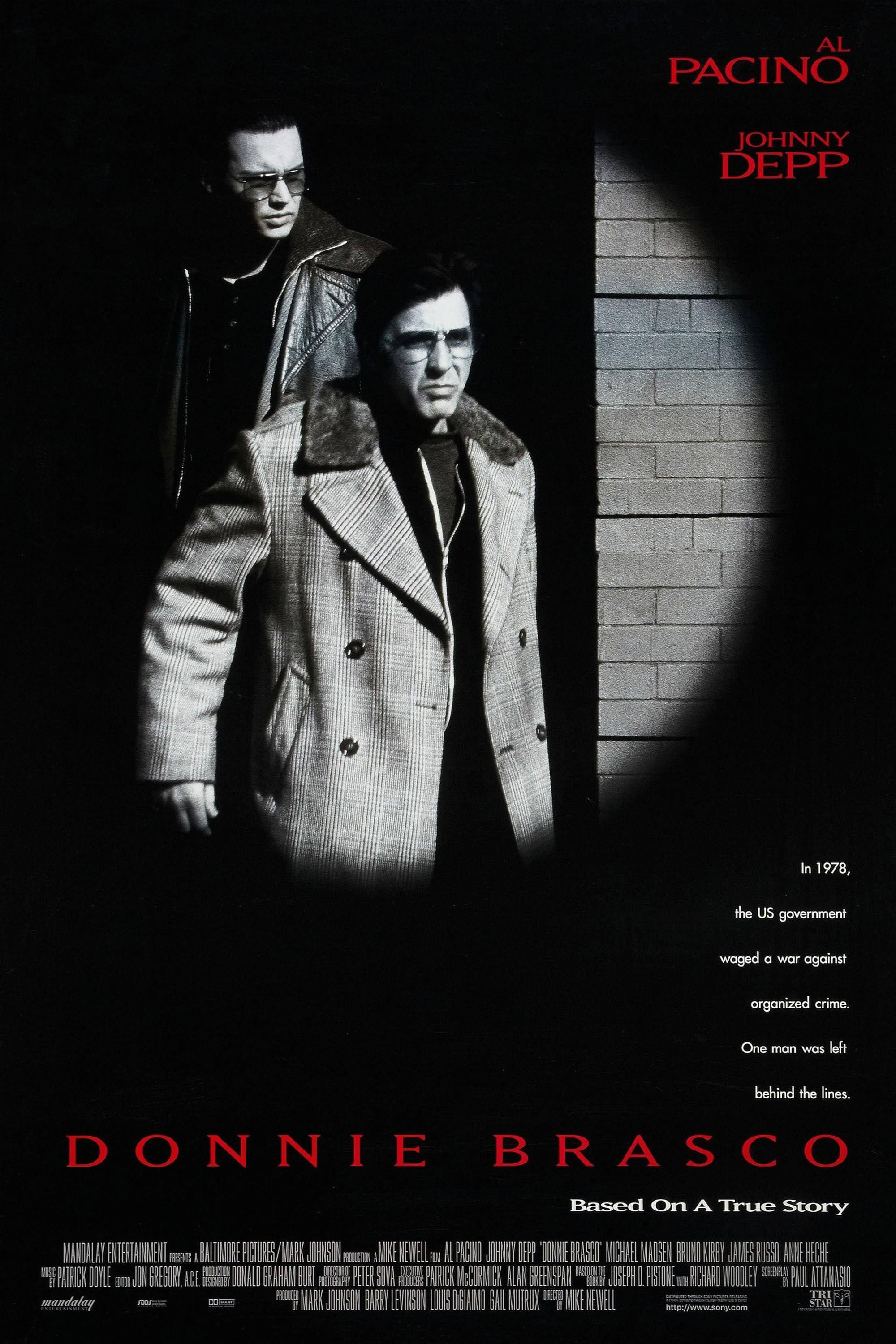
Donnie Brasco
Donnie Brasco is a crime drama film directed by Mike Newell, featuring Johnny Depp as an undercover FBI agent who infiltrates the mafia. Al Pacino co-stars as a seasoned mobster who mentors him. Based on true events, the movie explores the agent’s struggle to balance his professional duties and personal identity.
- Director
- Mike Newell
- Release Date
- February 28, 1997
- Runtime
- 127 minutes



